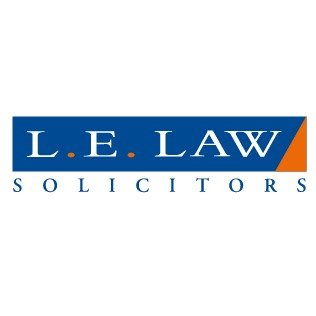Best Guardianship Lawyers in London
Share your needs with us, get contacted by law firms.
Free. Takes 2 min.
List of the best lawyers in London, United Kingdom
About Guardianship Law in London, United Kingdom
Guardianship in London, United Kingdom, relates to the legal guardianship of a child or an adult who is unable to make decisions due to incapacity. A legal guardian becomes responsible for that person's welfare which could include making decisions about their health, education (for children), finances, and other personal matters. The process of appointing a guardian can be complex and it's important to understand local laws thoroughly.
Why You May Need a Lawyer
Appointing a legal guardian involves the judiciary system and can be a complex process. It often requires the provision of medical proof, witness statements, and other legal documents only a professional can handle adequately. A lawyer can provide a detailed outline of all steps, define the potential risks and challenges, and support during court procedures. Particularly in contested situations, a lawyer's advice and representation can be instrumental. Additionally, a lawyer can help ensure that the guardianship is functioning as intended after the process is complete.
Local Laws Overview
The primary legislation that oversees guardianship in London, UK, is the Mental Capacity Act 2005 and the Children Act 1989. These laws outline who can become a guardian, the responsibilities of the guardian, and the rights of the person being cared for. It defines circumstances under which a person is considered incapable of making decisions and provides guidelines on how to protect their best interests. It also outlines the legal procedure to dispute a guardianship, making these particularly important laws to comprehend when navigating guardianship proceedings.
Frequently Asked Questions
Who can become a legal guardian?
A legal guardian can be a relative, a friend, or a professional worker. They will be evaluated by their ability to act in the person's interest.
What are a guardian's main obligations?
A guardian should take care of the person's financial, property, healthcare and, for a child, education interests. They should act in the best interest of the person under their protection.
Can the guardianship agreement be terminated?
Yes, the individual under guardianship, a relative, or another interested party can apply to terminate the guardianship if they believe it's not acting in the individual's best interest.
Is it necessary to go to court to obtain guardianship rights?
Yes, to legally obtain guardianship, an application must be made to a court, which will make a decision based on the best interests of the individual involved.
What happens if a guardian fails to meet their obligations?
If the court finds the guardian is not acting in the best interests of the individual, they may remove the guardian and appoint a new one.
Additional Resources
Organizations like the UK Government's Office of the Public Guardian and independent bodies like Mencap or Age UK provide guidance and resources related to guardianship. For child guardianship, the Children and Family Court Advisory and Support Service (Cafcass) is a valuable resource for people seeking information or advice.
Next Steps
If you need legal assistance for guardianship, it's advisable to begin by engaging a lawyer who specializes in guardianship laws. They can guide you through the process, help you prepare the necessary documentation, and support you during court proceedings. Understanding your rights, obligations, and the full impact of guardianship will support your case, and obtaining professional advice is the best step toward this.
Lawzana helps you find the best lawyers and law firms in London through a curated and pre-screened list of qualified legal professionals. Our platform offers rankings and detailed profiles of attorneys and law firms, allowing you to compare based on practice areas, including Guardianship, experience, and client feedback.
Each profile includes a description of the firm's areas of practice, client reviews, team members and partners, year of establishment, spoken languages, office locations, contact information, social media presence, and any published articles or resources. Most firms on our platform speak English and are experienced in both local and international legal matters.
Get a quote from top-rated law firms in London, United Kingdom — quickly, securely, and without unnecessary hassle.
Disclaimer:
The information provided on this page is for general informational purposes only and does not constitute legal advice. While we strive to ensure the accuracy and relevance of the content, legal information may change over time, and interpretations of the law can vary. You should always consult with a qualified legal professional for advice specific to your situation.
We disclaim all liability for actions taken or not taken based on the content of this page. If you believe any information is incorrect or outdated, please contact us, and we will review and update it where appropriate.









